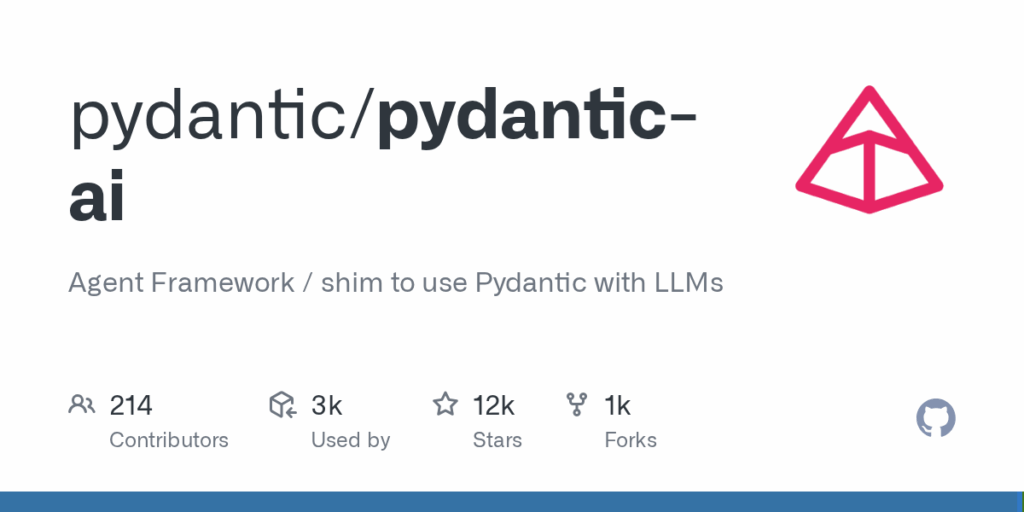Features
Model-agnostic support for multiple providers is included, with explicit support mentioned for OpenAI, Anthropic, Gemini, Deepseek, Ollama, Groq, Cohere, and Mistral. Pydantic-powered structured responses and output validation ensure consistent, typed outputs; if validation fails the agent can retry. A dependency injection system allows typed dependencies to be supplied to system prompts, tools, and output validators. Tool registration lets agents call typed functions while responding, with argument validation and error feedback to the model. Features also include streamed LLM outputs with immediate validation, integration with Pydantic Logfire for runtime debugging and monitoring, asynchronous and synchronous run modes, output validator functions, and Pydantic Graph support for expressing complex control flow.
Use Cases
Pydantic AI reduces engineering friction when building LLM-driven applications by enforcing type-safe, validated outputs and by providing reusable abstractions for prompts, tools, and dependencies. The framework enables reliable production behavior by making responses predictable, by allowing immediate stream validation for faster feedback, and by integrating with Pydantic Logfire for real-time debugging, behavior tracking, and performance monitoring. Dependency injection makes it easier to supply databases, services, and contextual data to agents while preserving static type checking and testability. Tool support and structured output models simplify composing multi-step interactions such as the provided bank support example where tools query balances and the agent returns a validated SupportOutput. Overall it helps teams ship maintainable GenAI features with clearer contracts and observability.








